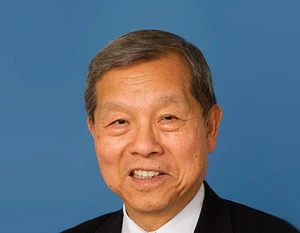What are Geopolitics & International Relations?
Geopolitics and international relations involve the study of how geography influences political power dynamics globally. It examines the competition over geographic entities - places, regions, territories - among countries and groups to achieve political objectives. This field assesses the impact of geographical factors on global interactions, focusing on power, territorial disputes and strategic interests. It integrates analysis of political, economic, and societal trends to forecast state behaviours, considering both classical and critical perspectives, to understand the evolving international environment and its implications for security, diplomacy and global economics.
Sources: Utah State University, Oxford Academic & CFA Institute
What Were the Most Significant Geopolitical Events of 2025?
2025 was defined by prolonged conflict, a sharp turn in US trade policy and a series of leadership changes that reshaped global power dynamics.
The war in Ukraine continued with limited territorial movement. Russia expanded its control by less than one per cent, reinforcing the reality of a drawn-out conflict with significant economic and security consequences for Europe and NATO. Over 400,000 Russians were killed or wounded for just 0.8% of Ukraine.
In the Middle-East, the Israel-Hamas war persisted across most of the year. Israel widened its military operations against Iranian-backed groups in Lebanon, Yemen and Syria, targeting Hezbollah and the Houthis. This escalated, including strikes on senior commanders and nuclear facilities, culminating in direct US involvement. Alongside this, the United States brokered a Gaza peace plan.
The return of Donald Trump to the White House as President of the United States on the 20th of January 2025 marked a decisive shift in global trade. On the 2nd of April, dubbed "Liberation Day", the US introduced sweeping tariffs, including a 10% baseline on all imports and higher reciprocal rates for countries with large trade deficits. Canada and Mexico faced rates of up to 25% on non-compliant goods, while selected sectors such as semiconductors and non-US energy were exempt. The overall average effective tariff rate was 16.8% as of November 2025.
Europe faced its own political shifts. In February 2025, Friedrich Merz became Chancellor of Germany after securing 325 votes in the second round. This new government were tasked with reviving the flatlining economy.
The Catholic Church elected its first US_born pope, Pope Leo XIV, following the death of Pope Francis. In Asia, Sanae Takaichi became Japan's first female prime minister after a tightly contested parliamentary vote, a significant moment for a country with persistent gender inequality.
What Are the Greatest Geopolitical Risks of 2026?
Following another turbulent year in 2025, countless geopolitical risks and events will shape 2026, including:
- US-China Competition - Expect escalation between China and the United States, driven by technology controls and trade retaliation
- Global Conflict - The Russia-Ukraine conflict surges on, in addition to the Israel-Palestine conflict centred on Israel and the Gaza Strip. There is also an ongoing civil war in Sudan, along with conflict in Yemen, which is having a direct effect on shipping through the Red Sea.
- Economic Nationalism & Sanction Fatigue - Rules holding together the global system are weakening. An example of this is the relationship between the United States and Venezuela, with sweeping sanctions, public regime-change rhetoric and a US indictment resulting in the capture of Venezuelan President Nicolás Maduro on the 3rd of January 2026.
- Climate-Driven Security Risks - Changing climates are having a substantial impact on geopolitics, including food shortages, water stress and climate migration.
- Cyber Conflict & AI-Enabled Disruption - States will increasingly use cyber operations for espionage, disruption and influence. AI will accelerate both attacks and defence, from automated malware to faster threat detection.
Sources: Al Jazeera, Chatham House, Forbes, Boston Consulting Group
A framework for understanding global politics, our expert geopolitics & international relations speakers explore the strategies and actions taken by countries, terrorist groups, and other entities to achieve their political objectives or control and influence over geographical features, including in major geopolitical events such as Brexit. If you want to understand more about how geographical locations are leveraged for political advantage, or how power is used to control geographical entities strategically, contact Champions Speakers to hire a geopolitics & international relations speaker today!
If you need guidance on who the best geopolitical speakers to hire are, take a look at our guide on the World's Top 20 Geopolitical Keynote Speakers to Hire! Our expert speakers will share their detailed knowledge on international relations, helping your audience to better understand the complex geopolitical map of the world.
Contact Champions Speakers by calling 0207 1010 553 or emailing [email protected]. Alternatively, complete our online contact form, and await contact from one of our dedicated booking agents today!




















